The first time I really got to gaze across a border into the wilds of another country, I was underwhelmed. It was a piercingly cold October morning and I was at the tip-top of the Granite State, feeling my lungs burn from taking in the brisk air as I huffed my way up Magalloway Mountain; one of the most remote peaks of New Hampshire. A modest 3,383 feet above sea level, Magalloway is not a mountain that you climb for bragging rights. You climb it because what lies north Magalloway is nothing less than the terminus of the United States—Quebec. And from the summit, you can gawk at it.
I’m not sure what I expected—little villages perched along a winding, pale blue river, like something out of a Bruegel painting?—but what I saw resembled a crumpled up, earth-toned duvet that someone had carelessly flung across a bed. There was nothing in the landscape or on the horizon that commanded my attention; no great mountains, lakes, or topographic anamolies. It was merely a collection of hills transitioning into farmland. When you enter another country, it’s normally accompanied by a weight of feeling. The sensation that you’ve set foot into a different world with different rules, customs, and possibilities. I still feel that every time I cross the U.S. border on my way to Montreal or Toronto. But looking at Canada from a mountain, that first time, had this strange effect of erasing the perceived distance between our two countries.
This happened back in 2018, midway through Donald Trump’s first presidential term, at a time when it seemed like it might just be that—one term. (I’m sorry, but Trump is going to be a part of this week’s story.) Driving to the top of New Hampshire is a real glute crusher of a journey, and the access road to Magalloway Mountain is so chock full of big, undercarriage-scraping rocks that I expected to glimpse rusting skeletons of sedans and sub-compact cars in the woods as I crept to the trailhead at 5 miles per hour. So I haven’t been back to Magalloway since that first jading visit. But where I have spent more time in the last few years is a neighboring region, located directly across another border; the NH-Vermont state line. A couple of years ago, two friends of mine bought an old, cozy house on a hill in the town of Lemington; the sort of real estate plunge that opens the door to buying wildlife cameras, salt licks, and a Bowie knife collection. Last November, I found myself up there alone, finishing up a book project and seeking some solitude. And along with directions for how to turn on the water, my friends left me with a suggestion for an adventure: Brousseau Mountain.
Just like Magalloway, Brousseau Mountain can appear to be a diminutive high point, as many of the mountains of northern New England are (when compared to the sky scratching heights of the Whites.) The out-and-back journey from the trailhead along Brousseau Mountain Road, in the town of Norton, is only 2.2 miles, with 636 feet of climbing. All of this sounded fine to me. Early winter lethargy had begun to creep in, the kielbasa I had cooked for lunch that day wasn’t sitting comfortably in my gut, and if I encountered any ice or snow on the trail, it would slow me down. So I threw some microspikes into my backpack and headed northwest on VT-114, passing ponds and Maple Creemee stands which had shuttered for the season. I was also driving parallel to the U.S.-Canada border until I eventually veered left onto the trailhead access road.
The ledgy and exposed top of Brousseau Mountain—a place where visiting peregrine falcons often prompt the state to close the trail during the summer—does not offer a panoramic view of the landscape. The view, which is still a New England banger in my book, is a south-facing one. A final lookback at Vermont. As I sat on one of the crags, admiring the blackish waters of nearby Little Averill Pond, several hundred feet below me, something even darker bubbled through my northernmost veins. It was a feeling I had come to know since 2022, when life began to trend back toward “normal” after the disruptions and traumas of the pandemic—a feeling that things were not going to work out. It was a closer bedfellow to anxiety than to depression, but not the kind of anxiety that evacuates your bladder or cranks up your sweat glands. It was a slower burn; this subtle but unshakeable awareness that something was really not right.
There was nothing that I could point to, in my immediate lines of sight, which would have explained where this feeling of impending darkness was coming from. I was writing a book! I had friends! I was enjoying the Vermont countryside and yet, also looking forward to returning to my home in Boston! All of these were markers of a good life. But behind the mountains that I could see at that moment were much bigger and gnarlier mountains which would eventually come into focus. No longer in my twenties, I often thought about the cost of health care and housing, as both soared into the stratosphere. I had begun to realize that emerging from the nuclear crater of the pandemic had not resulted in spending more time with my friends and family. The apps and digital technologies that once held promise were making us feel worse, and we couldn’t escape them. The writer Cory Doctorow has dubbed this “enshittification”—the moment when companies like Google and Facebook allow the user experience of their product to corrode, pivoting from audience capture to profit generation. Actually, I think the great Montreal post-rock band Godspeed You Black Emperor! described this moment best in their song “The Dead Flag Blues.” As the narrator says, “We are trapped in the belly of this horrible machine. And the machine is bleeding to death.”
But only 10 minutes into my descent from Brousseau Mountain, I saw something that seemed to promise an escape from the machine—another distinctive mountain just a handful of miles north of Brousseau. The trees along the trail opened up, allowing a northern-facing glimpse of this mirror mountain rising from the understated Quebec landscape! This was Mont Pinnacle, a French-Canadian doppelganger to Brousseau Mountain (which itself clearly has some French DNA, given its name.) I didn’t know it at the time, but the summit of Mont Pinnacle is also a craggy, windswept place that offers a stunning view of a neighboring pond. From the border crossing station down the road in Norton, it was less than a 20--minute drive to the Mont Pinnacle trailhead. You could comfortably visit both peaks in the span of one afternoon. Alas, the light was fading, the long, bitter dark of night was impending, and I had to get cozy again.
So I promised myself that within a year, I would climb Mont Pinnacle and look back at America and all that had come to pass since I first glimpsed the lonesome mountain.
I suppose the reason why Mont Pinnacle seemed to offer a sense of escapism is the same reason why crossing any border tends to inspire a sense of awe and humility. Again, it’s the perception that you’ve reached the edge of your world. You are ending and something else is beginning. The luckiest among us have experienced this transitional feeling in the form of delicious new foods, mystifying artwork, or, as we’ve covered in Mind The Moss before, nightclubs that you definitely can’t talk about at work. But far more of us have gone through that process under dire circumstances; fleeing persecution or indiscriminate violence, for instance, or attempting to escape the destructive power of climate change. In America, millions of people who have survived these horrors and created lives here are now facing the prospect of having those lives ripped away from them, as our incoming president speaks of roundups and concentration camps, as if that will alleviate the anxiety and frustration that so many Americans are struggling with. As if that would restore a glimpse of a future.
But we’re getting ahead of ourselves—narratively, at least. When I finally fulfilled my promise and made it to the foot of Mont Pinnacle, in the town of Coaticook, it was a spritzing June morning. I was headed to Montreal to write a Boston Globe story on maple sugaring shacks which were becoming year-round destinations, as the winter conditions in Quebec became slushier and less reliably frigid. Like ordering dinner at L’Express when you grew up speaking English at home and Spanish at high school, climbing Mont Pinnacle was slightly more challenging than climbing Brousseau the prior winter. The trail was muddier and steeper in places, and at 2.7-miles round trip, marginally longer. But the trail mirrored its Vermont cousin in more ways than one might expect; the fragrant pine trees, the mossy stones, all the chuckling streams I would occasionally encounter along the squelchy path, and of course, the final vista.
It’s instinctive and perhaps logical to view the places beyond our borders and lines of demarcation as distant and unknowable. Because there are foundational differences between us. But these contradictions are not elemental; they are the result of choices we have made, often under the influence of forces that can seem impossible to push back against. As I savored the summit of Mont Pinnacle in my rain jacket, munching on corn chips and looking down at the waters of Lac Lyster, I was cocooned in a pine scented bubble; shielded from the reality that in Canada, the same legitimate sense of despair and anger which has awoken demons beneath the surface of America is having a dark impact on Canadian politics too. It’s a subtler mirror image of what we are dealing with in the U.S., lacking the abject grotesequeries of Trumpism. But as costs of living skyrocket and the future slides out of reach for more and more people, nationalists are giving Canadians fake answers too; painting targets on the vulnerable.
So if you’re reeling from the results of last week’s election and are thinking of heading to Quebec soon—if I’ve convinced you to climb Mont Pinnacle this winter—then by all means, savor the differences; the “little things” that John Travolta lovingly refers to in Pulp Fiction, harkening back to a trip to the Netherlands where he discovered that you can put mayonnaise on fries. But if you’re thinking of Canada as a means of actually escaping our current reality in the U.S., my advice is to be careful. Some of us will find ourselves more exposed to the cruelty and vindictiveness of the Trump administration than others. In that situation, building a new life elsewhere (temporarily, or for good) might make sense. But for the rest of us, the bigger and more alluring differences of a neighboring country like Canada are a mirage; a slightly distorted reflection of our own hard reality, which we will now have to reckon with. Maybe there’s some gallows assurance in knowing that this is not a uniquely American problem; that systems are buckling and collapsing in other western countries, as voters reject a status quo that has no answers for the immiseration many of them are experiencing. Either way, it’s going to take nothing less than a mass movement to bring a kinder future into focus. If you woke up on November 6th feeling shattered, then America is going to need you.
So be kind to yourselves and each other these next few weeks, my dear Moss people. Rest up, and get ready, because we are going to be tested over the next few years; we are going to be asked to do brave things. This weekend and the next, do whatever you can to carve out space for a hike with each other, or a more brooding and ruminative ramble. Consider Brousseau Mountain! Consider Mont Pinnacle! And consider both.
Brousseau Mountain
Hike distance: 2.2 miles out-and-back
Elevation gain: 636 feet
CLICK HERE for a trail map
Mont Pinnacle
Hike distance: 2.7 miles loop
Elevation gain: 629 feet
CLICK HERE for a trail map
Election analysis thinkpieces are everywhere right now. Everyone has a theory for how Donald Trump managed to come back. If you still have not reached the limits of your appetite for these pieces, I suggest reading this one that University of Chicago history professor Gabriel Winant wrote for Dissent last week. But of all the postmortems I’ve read, the one that’s really lingered with me is this powerful essay from tech reporter Ed Zitron, who publishes the newsletter Where’s Your Ed At? Most election analyses have overlooked or massively understated the impact of big tech during this most recent election cycle. It’s not just the way in which bullshit and conspiracy theories can run rampant on social media; it’s the way in which apps can make us feel really bad about ourselves and our future. Zitron’s essay, titled “Lost In The Future,” is about this. And given that Elon Musk is now slated to become our shadow president, with all of the other tech titans lining up to kiss the ring, I can’t recommend Zitron’s essay enough. For me, it affirmed something I had already decided for myself; that in 2025 and beyond, I am going to ground more of my social and political engagement in the real world. Because that’s where the meaningful exchanges are going to happen, and because it means I’ll conserve energy for specific, intentional online activities; like writing and publishing Mind The Moss! And also, writing about what we’re going to be dealing with now and how we might get through it, as I did for WBUR this past week.
Finally, I want to leave you all with some good news. On Tuesday, my fellow Walking City Trail volunteers and I gathered at Boston City Hall for a conversation with the city council and the Wu administration. We talked about ways in which the city can help promote the WCT; making it more visible and further activating it. And we came out of this hearing with tangible collaborative goals to work toward! You can read my recap of the hearing by clicking here, or you can watch the hearing video embedded above.


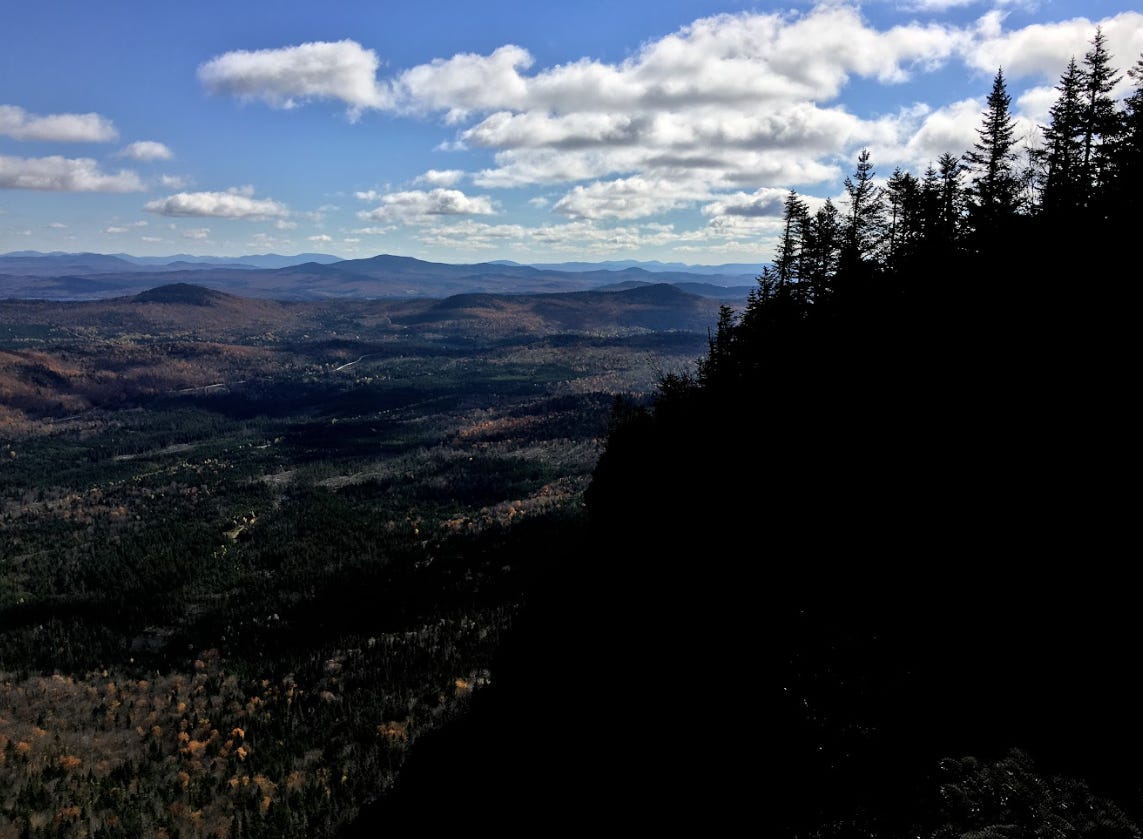
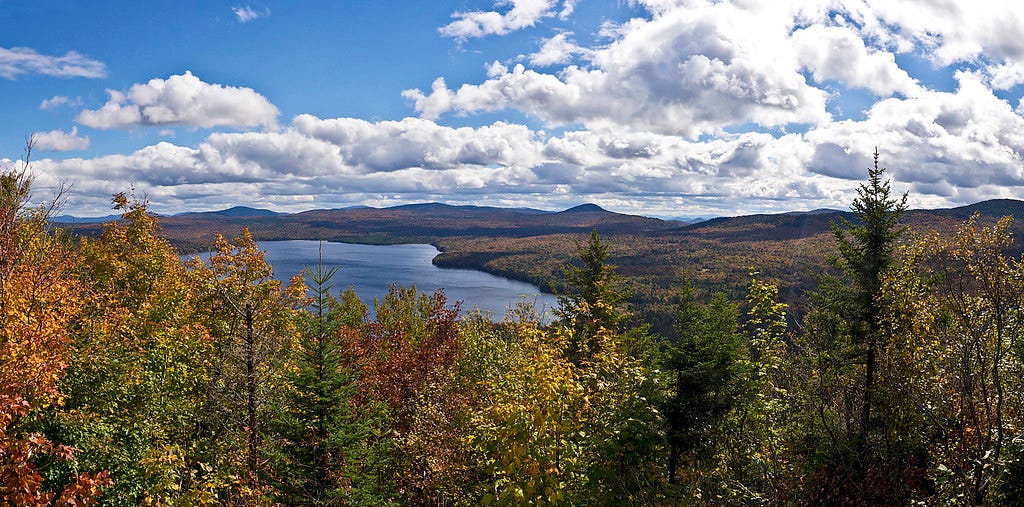
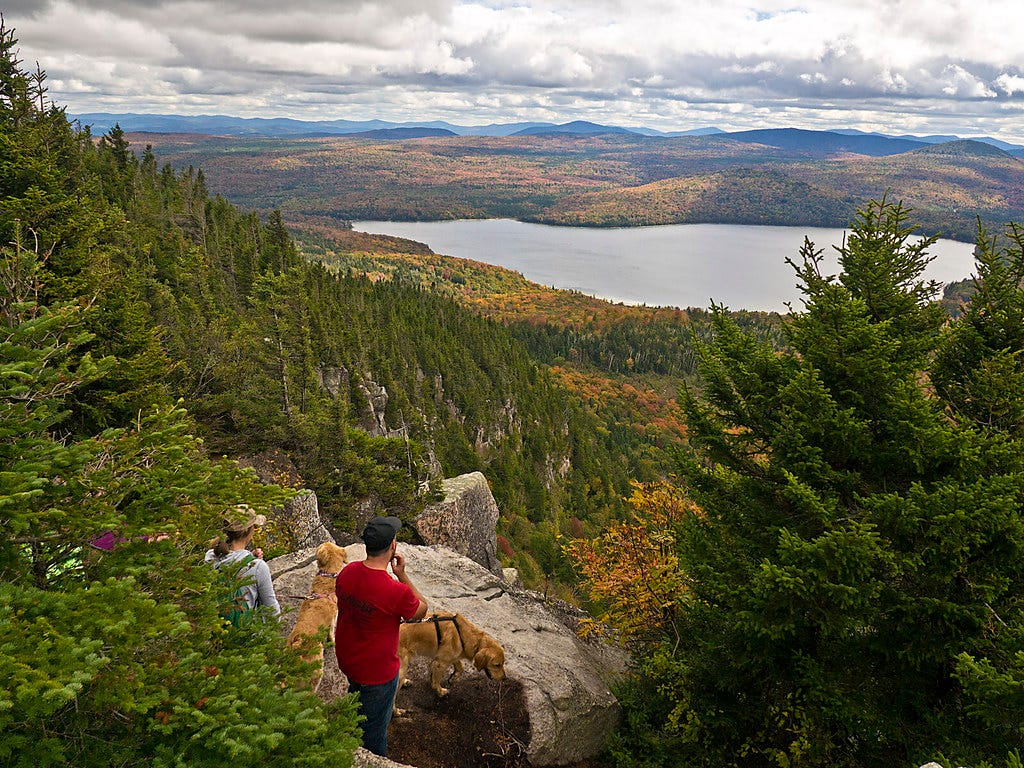
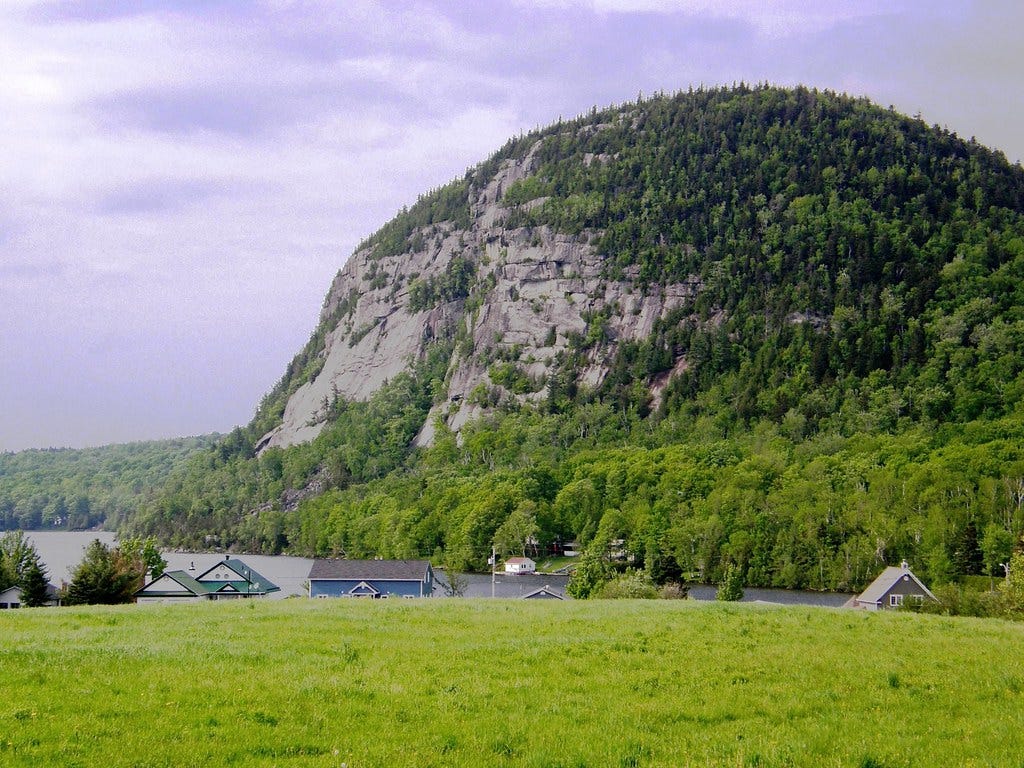


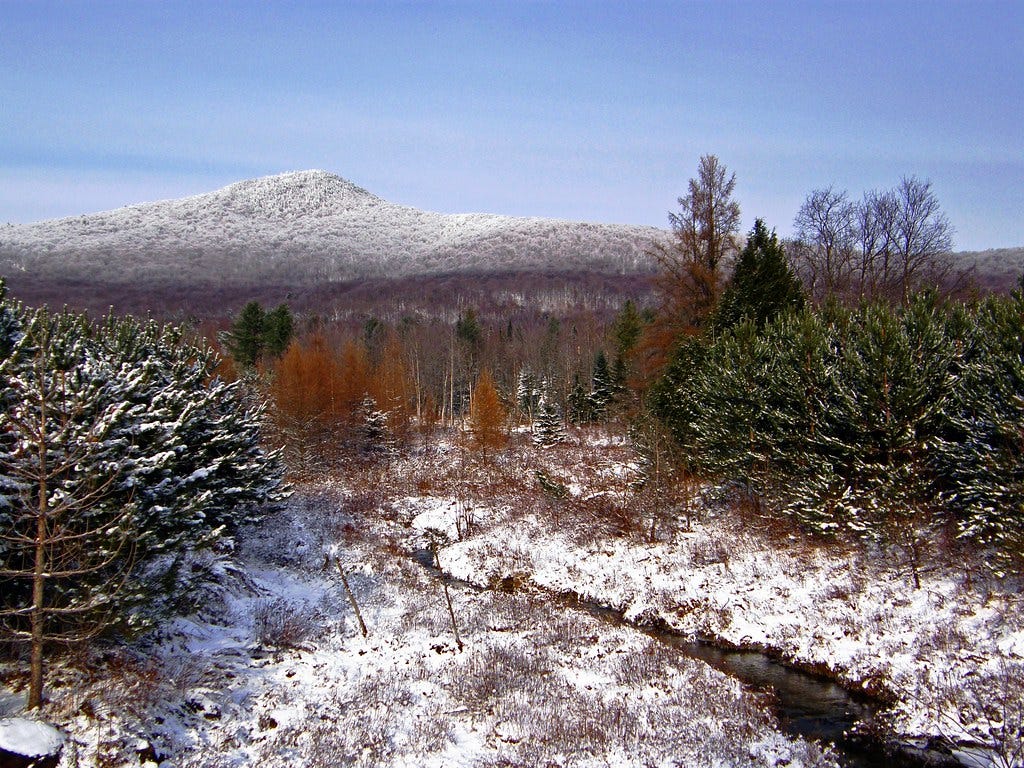
Miles, Thank you for the comfort and solace that this essay brings. Very much appreciated and grateful - Jeanne Cronin
Thank you for this really grounding piece, Miles.